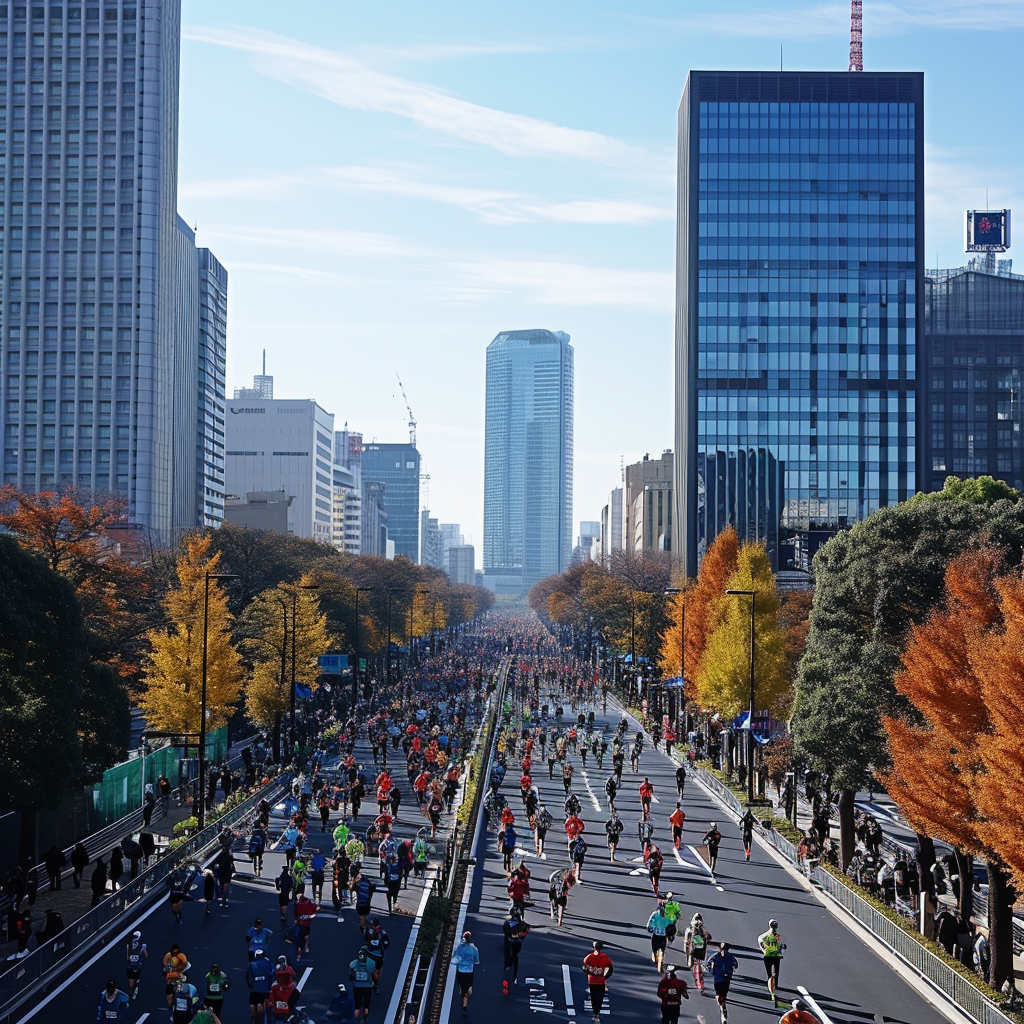The Tokyo Marathon, which takes place every February, is one of the most iconic sporting events in Japan. Attracting runners from around the world, this prestigious race offers not only a stimulating athletic challenge, but also a unique experience combining sport, culture and history. In this article, we’ll delve into the fascinating details of this annual event that transcends the boundaries of sport to become a celebration of endurance, diversity and community spirit.
The history of the Tokyo Marathon:
The Tokyo Marathon began in 2007. It quickly grew in popularity to become one of the six major marathons in the world. The event has its roots in the Tokyo Olympic Marathon. It was first organized in 1980 in commemoration of the 1964 Summer Olympics. Since then, the marathon has evolved into a major international race. It attracts thousands of passionate runners every year.
The picturesque route:
The Marathon course offers runners a unique experience. Indeed, it passes by some of the city’s most emblematic sites. Departure takes place at the Tokyo Metropolitan Government Building, with spectacular views of the city. Riders then pass through districts such as Shinjuku, Asakusa, Ginza and the Imperial Palace. Thus offering a diversity of landscapes, from modern skyscrapers to historic temples.
Culture and tradition of the Tokyo Marathon:
This marathon is not just a simple sporting event, it also celebrates the cultural richness of Japan. Spectators are encouraged to support the runners by wearing traditional costumes. This creates a vibrant and colorful atmosphere throughout the route. Additionally, traditional entertainment, such as folk dances and taiko drumming performances, are organized to entertain participants and supporters.
International participation:
The Marathon has become a global event, attracting runners of all nationalities. The organizers have implemented a lottery system for the selection of participants. This guarantees a diverse representation of runners from the four corners of the globe. This diversity strengthens the spirit of community and creates an inclusive atmosphere throughout the race.
Social and economic impact:
In addition to its sporting and cultural importance, the Tokyo Marathon has a significant economic and social impact. It attracts thousands of visitors every year. It thus generates income for the hotel industry, restaurants and local businesses. Additionally, the event promotes a healthy and active lifestyle, encouraging community participation in the practice of sport.
The Tokyo Marathon is much more than just a race. It embodies the fusion between sport, culture and history, creating an unforgettable experience for participants and spectators. Whether you’re a professional runner looking for an international challenge or a lover of Japanese culture, the Tokyo Marathon offers a unique adventure that celebrates diversity, endurance and sharing a common passion for running .



